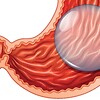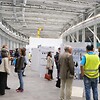Fritextsökning
Artiklar per år
Innehållstyper
-

“An entire industry is about to be wiped out”
According to Jennie Ekbeck, CEO of Umeå Biotech Incubators, Sweden risks not having any small diagnostic companies left in five years.
-

How critical are the “Spermageddon” reports? – Researchers call for action
A much talked about meta-study indicates that sperm concentration in men’s seminal fluid has halved in 40 years. Experts in andrology that Life Science Sweden speaks to believe that the results must be taken seriously, and call for action from the Swedish authorities.
-

Column: ”Life as a F1 race”
"The F1 car makes several pit stops during a race and during a lifetime the human being may also have to come in several times for maintenance", Björn Ursing writes in a column.
-

Nya regelverket IVDR – "Flaskhalsen är för trång"
För ett litet företag som Uman Diagnostics är det ett omfattande arbete att ställa om till det nya regelverket för in vitro-diagnostik, IVDR. Men enligt vd:n Niklas Norgren är den största utmaningen bristen på anmälda organ som kan certifiera produkterna.
-

“En hel bransch är på väg att raderas”
Enligt Umeå Biotech Incubators vd Jennie Ekbeck finns det risk för att det inte finns några mindre diagnostikföretag kvar i Sverige om fem år.
-

Rapid development in blood analysis – “Sweden is leading the race”
Thousands of analytical tests using just one single drop of blood. What was revealed as a hoax just a few years ago is now a reality, according to KTH professor and serial entrepreneur Mathias Uhlén.
-

Individual DNA passport could result in fewer drug side effects
You may be required to show a DNA passport when you pick up medicines at the pharmacy in the future. According to a new study, patients might suffer 30% fewer side effects if the drug treatment is adapted to their genes.
-

Claims of life science companies fleeing abroad is a myth according to survey
The claim that life science companies are moving abroad is exaggerated. In fact, only a tiny percentage is leaving the country, according to a survey.
-

Column: ”We need to exploit the benefits of the regulations“
You don’t need to search long on the Internet to find lists of the most innovative countries with Sweden ranking at the top. Sweden generally offers good conditions for growing new solutions, but it is also becoming increasingly clear that we are challenged in one area – regulations, writes Björn Arvidsson in a column.
-

Krav på screening för fler cancerformer – ”Sverige har inget att skryta med“
Sverige måste bli bättre på tidig upptäckt och behandling av cancer. Men då behövs screening för fler sorters cancer än idag, menar företrädare för sex stora organisationer inom cancerområdet i en artikel på DN Debatt.
-

The government proposes fines for pharmaceutical companies that fail to notify drug shortages in time
According to a compilation from the Swedish Medicines Agency, the number of residually notified medicines increased by 54 % in Sweden last year compared to the previous year. In a bill presented by the government a number of proposals are put forward to counteract the problem.
-

"Unclear proposal from the EU Commission on how to solve the MDR challenges"
Even before the EU regulation on medical devices (MDR) came into force, medical technology companies and doctors were concerned that it would endanger the availability of medical devices in the EU. Unfortunately, the fears have come true.
-

”Otydligt förslag från EU-kommissionen om hur MDR-utmaningarna ska lösas”
Redan innan EU-förordningen om medicintekniska produkter (MDR) trädde i kraft fanns en oro hos medicinteknikföretag och läkare för att den skulle äventyra tillgången på medicintekniska produkter i EU. Farhågorna har dessvärre besannats.
-

Ny Sverigechef till Boehringer Ingelheim
Australiensaren Paul Dunesky har arbetat inom Boehringer Ingelheim sedan 2013 – nu blir han Sverigechef.
-

She creates pharmaceuticals on a 3D printer
The correct dosage for each individual, regardless of whether the pharmaceutical is for a seriously ill child or a frail elderly person, is the mission of a well-advanced project with 3D-printed drugs at Uppsala University. “It will soon be available in clinics”, says Christel Bergström, who is heading the project.
-

Neanderthal genes and Nobel Prize in a popular lecture at Bioscience
An inherited gene variant from our ”evolutionary cousins” – the extinct Neanderthals – may affect how our bodies break down certain drugs. “It’s only a matter of time before we actively start screening for it,” said KI researcher Hugo Zeberg when
-

"Are we doing business the wrong way around in the Life Science Sector?"
For the past 50 years we have created solutions for problems that we thought would solve the problems. Pharmaceuticals have created big block buster drugs which were great for that time but now we realise that these drugs were in fact only tested in white men and certainly not for patients who are older who are taking a number of medications.
-

Alert from the Swedish Medicines Agency: Many complications with gastric balloons
According to the Swedish Medicines Agency, an increasing number of serious complications are being reported in procedures with gastric balloons as a method for weight loss. The authority fears significant shortcomings in the information to patients both before and after the procedure.
-

“We need to build flexible operating theatres”
Flexible operating theatres, micro-sensors on surgeons to monitor their well-being and 3D images projected onto organs to be operated on. These are a few ideas that three specialist surgeons are suggesting for the operating theatre of the future.
-

Neutronmöte i Lund samlar hundratals toppforskare
För första gången hålls en konferens knuten till den nya forskningsanläggningen ESS i Lund. Det är Institut Laue-langevin, ILL, i Frankrike och European Spallation Source, ESS, som tillsammans samlar neutronforskare från hela världen.
-

Biosimilars bring price pressure, but are they sufficiently used?
When biosimilars were introduced just over 16 years ago, hopes were raised that they would give many more patients access to effective but otherwise extremely expensive treatments with biological drugs. So, how well has Swedish healthcare used biosimilars? The answer partly depends on whom you ask.
-

Bought a tablet factory – and built his own empire
In 1995, Thomas Eldered was CEO of one of Pharmacia’s factories in the Stockholm area when the Swedish pharmaceutical giant, after a takeover, decided to move its production abroad. 34-year-old Thomas was facing an imminent risk of losing his job. However, instead, it actually turned out to be the starting point for one of the biggest success stories in Swedish life science.
-

Marie Gårdmark: Potential step change – EU regulators get to play with data
A new pilot from EMA is starting in September to assess wether the analysis of 'raw data' by regulatory authorities improves the evaluation of marketing approval for new medicines. Marie Grådmark writes in a column that she is looking forward to the outcome of the pilot to hopefully then understand if “in house” analyses actually will add value.
-

Genes from Neanderthals can affect the correct drug dosage
A fifth of all Europeans carry gene variants inherited from Neanderthals, which cause certain drugs to break down more slowly. This may have implications for the drug doses they should take.